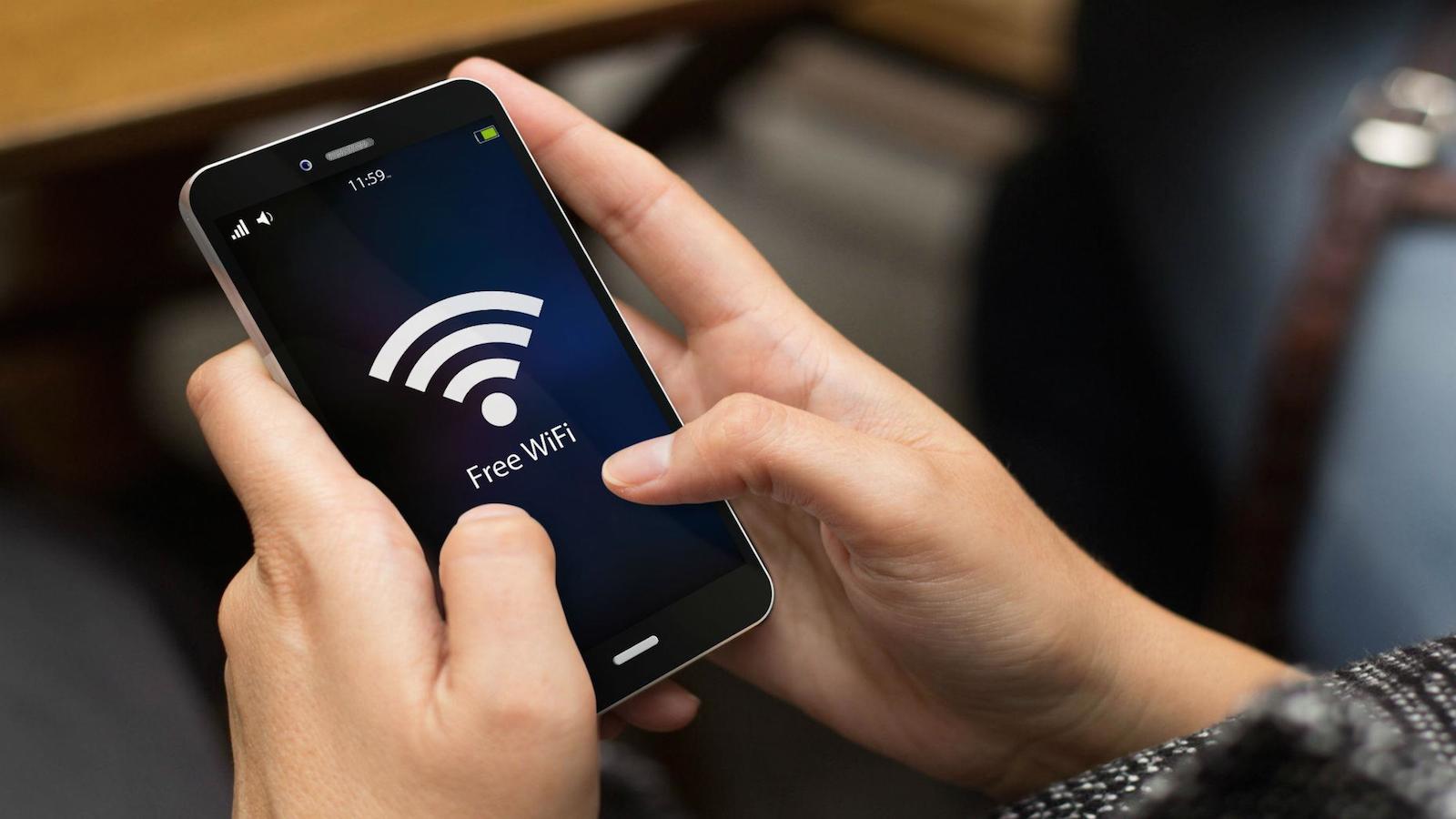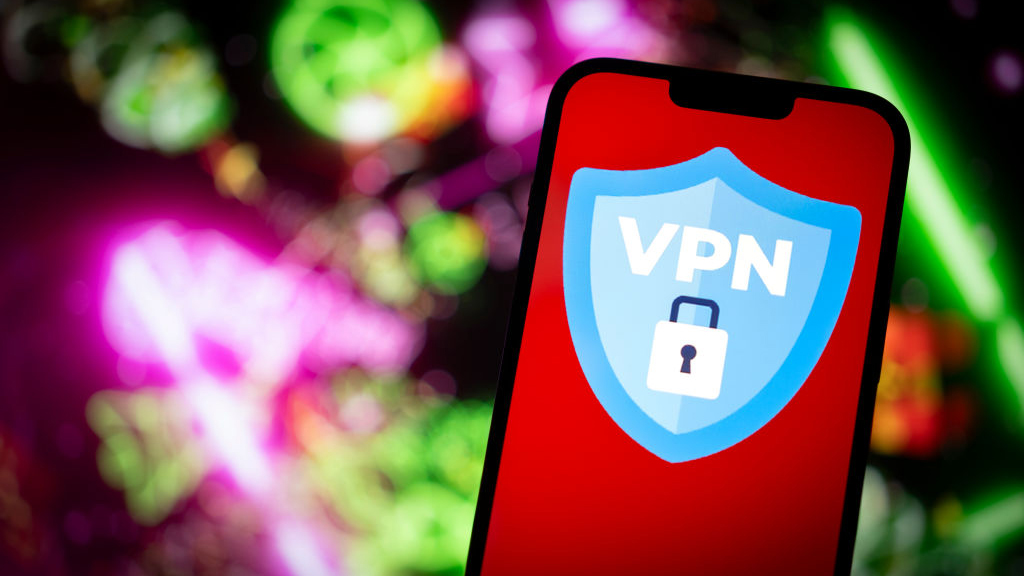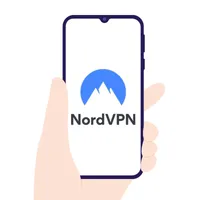Free public Wi-Fi could cost you dearly. Here’s a $50 incentive to fix it
Fight back against identity theft and pick up a free Amazon Gift card at the same time

Think how many times you connect to public Wi-Fi – on a train to work, at the station before you get on, in a cafe while you send a few emails, at school, at the shopping mall, and all those tens of other places where your phone switches from mobile broadband to wireless because you've connected somewhere before, and all without you even realizing.
Well, what if I told you that your identity, your device, and your privacy are at risk every time that happens?
Wi-Fi hotspots are extremely convenient for saving data, browsing quickly, and getting online in a pinch, but there are hackers who exploit your public online habits to steal personal information.
Injecting malicious software
Hackers use insecure public Wi-Fi networks as entry points to any unsuspecting and unprotected devices that join those networks. So, that would be anyone connecting to the hotspot on their phone, laptop, or tablet that hasn't taken precautions to secure themselves, which, sadly, is most users.
One quick and obvious method of attack is for them to inject malicious software onto your laptop or mobile.
Once onboard your device, that malware could take several unpleasant actions, such as sending your usernames and passwords to a hacker's database, or start copying any addresses and credit card numbers you input into online stores. Your whole device, and everything on it, would be compromised.
One easy way to do this is for the hacker to create a fake Wi-Fi hotspot. Call it 'Free Wi-Fi' and you'd be unsurprised by the huge numbers of people who would try to join it.
These fake networks mimic legitimate hotspots. They might even connect to the internet at large to keep you on there as long as possible, but the rules of the network would allow the person who set it up full access to your device and everything on it.
They could steal your data, as above, and it could also lead to full identity theft. They might use the information they collect about you to impersonate you and commit fraud in your name, too.

How to protect yourself on public Wi-Fi
Using verified public Wi-Fi networks is an obvious place to start. If you're sitting in a cafe, ensure you're using the actual advertised details of the cafe network and not just whatever looks right on your computer.
If you really want peace of mind, though, get a VPN app for your phone, tablet, and laptop. Download a VPN app, set it up, and then just leave it running in the background wherever you go.
They work by encrypting all the information that you send between your device and the internet. They're next to impossible to hack, and even if someone did manage it, all they would get hold of would be a load of undecipherable gibberish instead of your real details.
There are plenty of good VPNs out there, but we'd encourage you to go with one of our recommendations because, sadly, there are even fake VPNs out there to catch you out too.
The one we rate as the best VPN is NordVPN, and the excellent news is that we have an exclusive NordVPN deal at TechRadar until 10 July, 2025.
Sign up for selected NordVPN 2-year plans and get up to 76% off plus a free Amazon Gift Card. Alongside these perks, TechRadar readers get 4 months of free protection on top. This limited-time offer is available for the US, UK, Canada, and Australia, so make sure not to miss it.
EXCLUSIVE NordVPN: up to $50 Amazon Gift Card + 4 months free on two-year plans
Tired of risking your data on public WiFi? NordVPN has you covered. This limited-time exclusive deal applies to selected NordVPN 2-year plans and includes:
✅ Up to 76% OFF
✅ Up to $50 Amazon Gift card
✅ 4 months free protection (TechRadar exclusive)
So you can even top up your shopping as a bonus! The precise value of the Amazon Gift card depends on which of the 2-year plans you choose.
Just hit the 'View Deal' button to claim TechRadar's exclusive deal. And remember – you can still use its 30-day money-back guarantee (though yes, you'll lose the voucher!).
How VPNs protect your data
Connecting to a virtual private network (VPN) can minimize the security risks of public Wi-Fi in a couple of clicks. That's because a VPN encrypts your internet connections to scramble your data in transit into an unreadable form, preventing unauthorized access.
This minimizes the risk of malicious actors intruding on your device when connecting to a vulnerable Wi-Fi hotspot. The most secure VPN services also include other security features to boost your online security further against third-party snooping. Options like a kill switch and DNS leak protection offer further assurance that none of your data can leak, even when your VPN connection drops.
VPNs also often include a wealth of additional features aside from the VPN itself, including password managers and anti-virus too, so they can also streamline the number of apps and services you need to install and pay for.
Do take a look, but whatever you do, please do your due diligence each and every time you connect to a public Wi-Fi hotspot. Surf safe!
We test and review VPN services in the context of legal recreational uses. For example: 1. Accessing a service from another country (subject to the terms and conditions of that service). 2. Protecting your online security and strengthening your online privacy when abroad. We do not support or condone the illegal or malicious use of VPN services. Consuming pirated content that is paid-for is neither endorsed nor approved by Future Publishing.

Chiara is a multimedia journalist committed to covering stories to help promote the rights and denounce the abuses of the digital side of life – wherever cybersecurity, markets, and politics tangle up. She believes an open, uncensored, and private internet is a basic human need and wants to use her knowledge of VPNs to help readers take back control. She writes news, interviews, and analysis on data privacy, online censorship, digital rights, tech policies, and security software, with a special focus on VPNs, for TechRadar and TechRadar Pro. Got a story, tip-off, or something tech-interesting to say? Reach out to chiara.castro@futurenet.com
You must confirm your public display name before commenting
Please logout and then login again, you will then be prompted to enter your display name.
